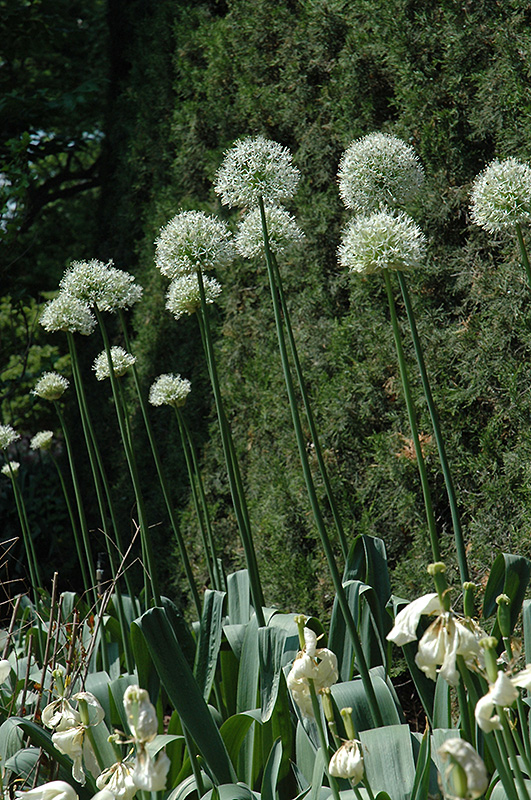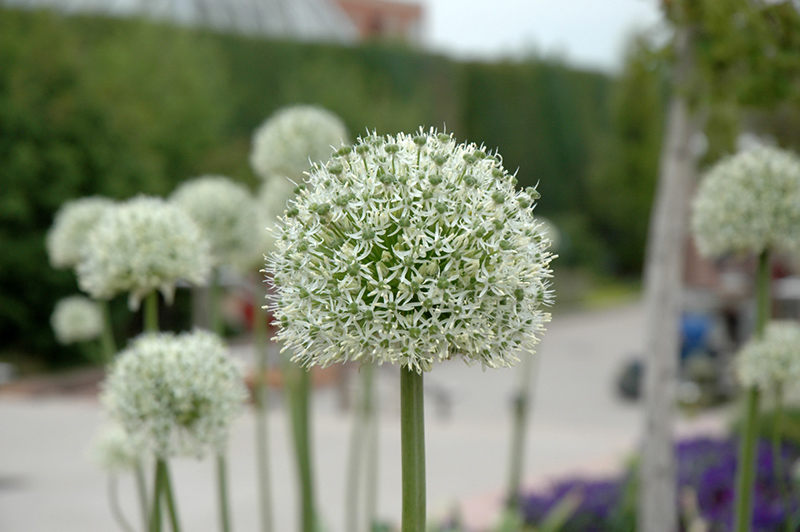12 inches
3 feet
12 inches

2a
Flowering Onion
Mount Everest Ornamental Onion features bold balls of lightly-scented white flowers at the ends of the stems from late spring to early summer. The flowers are excellent for cutting. Its fragrant sword-like leaves remain green in color throughout the season.
Mount Everest Ornamental Onion is an open herbaceous perennial with tall flower stalks held atop a low mound of foliage. Its relatively coarse texture can be used to stand it apart from other garden plants with finer foliage.
This is a relatively low maintenance plant, and should only be pruned after flowering to avoid removing any of the current season's flowers. It is a good choice for attracting butterflies to your yard, but is not particularly attractive to deer who tend to leave it alone in favor of tastier treats. It has no significant negative characteristics.
Mount Everest Ornamental Onion is recommended for the following landscape applications;
- Vertical Accent
- Mass Planting
- General Garden Use
Mount Everest Ornamental Onion will grow to be about 12 inches tall at maturity extending to 3 feet tall with the flowers, with a spread of 12 inches. It grows at a medium rate, and under ideal conditions can be expected to live for approximately 5 years. As an herbaceous perennial, this plant will usually die back to the crown each winter, and will regrow from the base each spring. Be careful not to disturb the crown in late winter when it may not be readily seen! As this plant tends to go dormant in summer, it is best interplanted with late-season bloomers to hide the dying foliage.
This plant should only be grown in full sunlight. It does best in average to evenly moist conditions, but will not tolerate standing water. It is not particular as to soil type or pH, and is able to handle environmental salt. It is highly tolerant of urban pollution and will even thrive in inner city environments. This particular variety is an interspecific hybrid. It can be propagated by multiplication of the underground bulbs; however, as a cultivated variety, be aware that it may be subject to certain restrictions or prohibitions on propagation.

